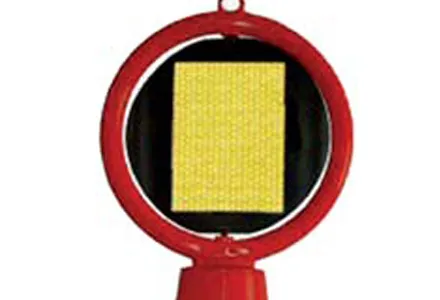ROTAFLECTOR fits securely on the top of traffic cones and can replace up to 50% of road danger lamps (every other lamp) in straight line delineation, claims its manufacturer. The wind-driven rotating reflective device has been fully tested at TRL [UK's Transport Research Laboratory] and approved for use on the network by the UK Highways Agency and the Department for Transport. Requiring no batteries, the ROTAFLECTOR is made from recycled materials and is totally recyclable itself.
February 29, 2012
Read time: 1 min

ROTAFLECTOR fits securely on the top of traffic cones and can replace up to 50% of road danger lamps (every other lamp) in straight line delineation, claims its manufacturer.
The wind-driven rotating reflective device has been fully tested at777 TRL [UK's Transport Research Laboratory] and approved for use on the network by the 1441 UK Highways Agency and the 5432 Department for Transport.
Requiring no batteries, the ROTAFLECTOR is made from recycled materials and is totally recyclable itself.
The wind-driven rotating reflective device has been fully tested at
Requiring no batteries, the ROTAFLECTOR is made from recycled materials and is totally recyclable itself.








